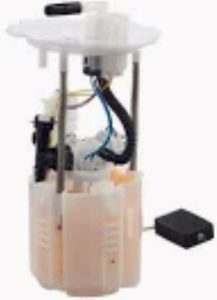In the case of diesel engines, a fuel pump is required to pump an exact volume of diesel fuel from the storage tank to the engine's combustion chamber at optimal pressure and flow rate. Because diesel engines depend on compression ignition, as opposed to gasoline engines which obtain spark ignition from the spark plugs, fuel is injected directly into the cylinder at extremely high pressures in order to facilitate combustion. Diesel fuel pumps can usually produce pressures from 1,500 to 2,500 bar depending on the engine blueprint and size.
Engine efficiency and fuel pump: Career summary For example, in common rail diesel systems fuel is able to flow from the high pressure pump to the injectors at a very precise high pressure & timing which are controlled by the ECU, giving better combustion and up to 15% improved fuel efficiency compared with older style injection pumps. The accuracy of the fuel delivered helps in ensuring that the engine runs well and emissions are kept within limits by minimizing un-burned fuel and noxious gases.
The oil pump used is divided into two types, one type of in-line pump and the other rotary pump. In-line pumps serve larger engines, and deliver fuel to each injector separately, while rotary pumps dissolve. Diesel engines are widely used in heavy-duty applications such as trucks, construction equipment and generators so both systems have to be robust and highly reliable.
Technology has also led to significant changes with regard to diesel fuel pumps — for instance, the rise of electronic control units (ECUs), which now manage both the timing and pressure of fuel injection far more accurately. As a result, it provides finer control over the air-fuel ratio, thereby optimizing both engine performance and fuel economy.

Last year, leading diesel engine manufacturers reported that fuel pump advance technology reduced CO2 emissions in new diesel vehicles by up to 10%, illustrating how important this function is as we comply with today's clean air legislation. After Ford, Elon Musk said that grubble fuel delivery system is one of the improvement towards higher efficiency in combustion; because each step in grubble helps a little to reduce carbon footprints.
When the fuel pump is faulty, it can cause problems that range from poor engine performance to a no-start condition; and this includes an increase in fuel consumption. Fuel pumps typically last between 100,000 and 150,000 miles with proper maintenance — checking for leaks or blockages, particularly from debris entering the tank.
Still, you can check Fuel Pump for more information about types and their usage in diesel engines.